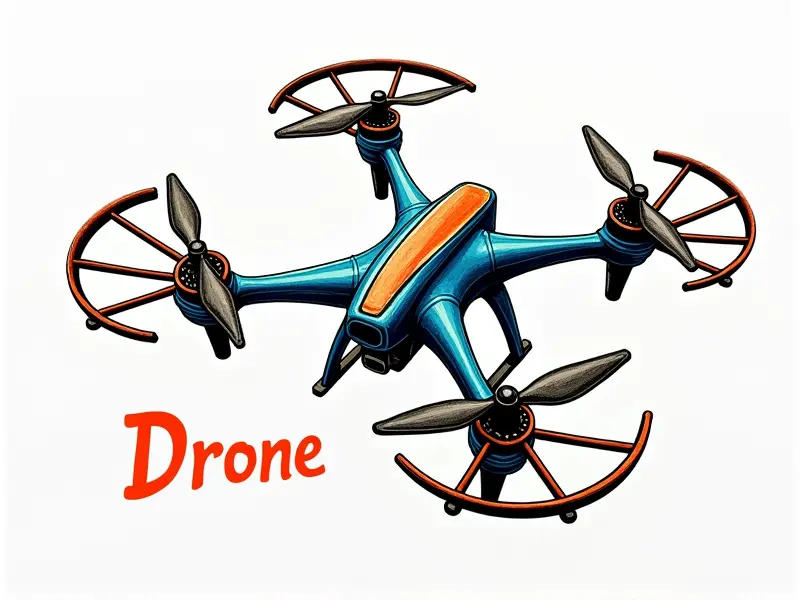How to fix RC crashes?

How to Prevent RC Crashes: Top Tips
Preventing remote control (RC) crashes is crucial for maintaining your equipment and ensuring a fun, frustration-free experience. Here are some top tips:
- Proper Setup: Ensure all components of your RC vehicle are properly assembled and calibrated.
- Battery Maintenance: Keep batteries charged and in good condition to avoid unexpected power failures.
- Flight Environment: Choose a safe, open area free from obstacles for optimal flight conditions.
- Pilot Skills: Regularly practice flying techniques to improve your skills and response time.
Common Causes of RC Crashes Explained
Understanding the reasons behind crashes can help you take proactive measures. Here are some common causes:
- Battery Issues: Low battery levels or faulty batteries can lead to sudden power drops.
- Signal Interference: External devices like cell phones and other electronics can disrupt the RC signal.
- Pilot Error: Lack of experience, poor judgment, or distraction can cause crashes.
- Mechanical Failures: Faulty parts such as motors, propellers, or control systems can malfunction.
Stop RC Quadcopter Crashes in Their Tracks
Quadcopters are particularly susceptible to crashes due to their complex nature. Here’s how to prevent them:
- Balanced Propellers: Ensure all propellers are balanced and securely attached.
- Firmware Updates: Keep your quadcopter's firmware updated for optimal performance.
- Flight Stability: Use advanced features like GPS stabilization to maintain flight stability.
Avoiding RC Helicopter Crashes
RC helicopters require precise control and maintenance. Here are some tips to prevent crashes:
- Propeller Care: Regularly inspect propellers for damage or wear.
- Battery Management: Use high-quality batteries and monitor voltage levels closely.
- Pilot Training: Practice hovering and maneuvering in a controlled environment before venturing out.
Quick Fixes for RC Racing Drone Crashes
Racing drones are prone to crashes due to their high speeds. Here’s what you can do:
- Propeller Replacement: Replace damaged propellers immediately to restore performance.
- Battery Swap: Carry extra batteries and swap them out when needed.
- Control Adjustments: Fine-tune your control settings for better responsiveness.
Recover from RC Drone Crashes Easily
Crashes are inevitable, but recovery can be straightforward with the right approach. Here’s how to proceed:
- Assess Damage: Carefully inspect your drone for any visible damage.
- Check Connections: Ensure all components are securely connected and functioning properly.
- Seek Professional Help: If unsure, consult a professional technician or online forums for guidance.
Preventive Maintenance to Avoid RC Crashes
Maintaining your RC vehicle is key to preventing crashes. Here are some maintenance tips:
- Regular Inspections: Check all parts regularly for wear and tear.
- Lubrication: Apply lubricants to moving parts as recommended by the manufacturer.
- Clean Components: Keep your RC vehicle clean to prevent dirt from affecting performance.
Post-Crash Inspection for RCs
A thorough inspection after a crash is essential. Here’s what you should check:
- Structural Integrity: Look for cracks or deformations in the frame and body.
- Mechanical Components: Inspect motors, gears, and other mechanical parts for damage.
- Electronic Systems: Test all electronic components to ensure they are functioning correctly.
Common Mistakes Leading to RC Crashes
Avoid these common mistakes to reduce the likelihood of crashes:
- Inadequate Training: Don’t underestimate the importance of proper training and practice.
- Neglecting Maintenance: Regular maintenance is crucial for optimal performance and safety.
- Flying in Unfamiliar Environments: Be cautious when flying in new or unfamiliar locations.
5 Common Causes of RC Crashes
The following are five common causes that lead to crashes:
- Battery Issues: Low battery levels can cause sudden power drops, leading to loss of control.
- Signal Interference: External devices can disrupt the RC signal and cause erratic behavior.
- Pilot Error: Lack of experience or poor judgment can result in unintended movements.
- Mechanical Failures: Faulty parts such as motors, propellers, or control systems can malfunction unexpectedly.
- Environmental Factors: Wind, rain, and other weather conditions can affect flight stability.
Quick Fixes for Frequent RC Crashes
If you experience frequent crashes, consider these quick fixes:
- Battery Check: Test your batteries to ensure they are holding a charge properly.
- Signal Testing: Verify that the signal between your RC and vehicle is strong and clear.
- Pilot Review: Revisit your flying techniques and seek feedback from experienced pilots.
Conclusion
Preventing RC crashes requires a combination of proper setup, regular maintenance, and careful piloting. By understanding the common causes of crashes and implementing preventive measures, you can significantly reduce the risk of damage to your equipment and enhance your flying experience. Remember, safety should always be your top priority when operating remote control vehicles.

